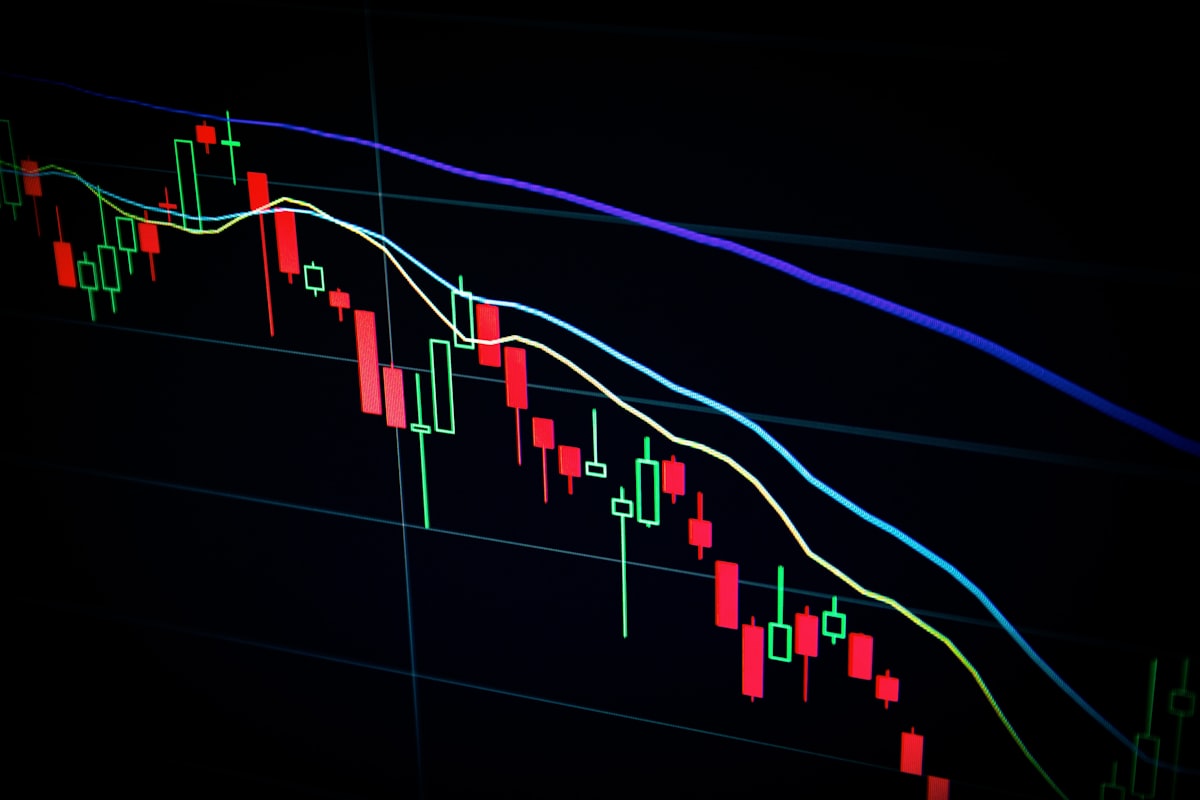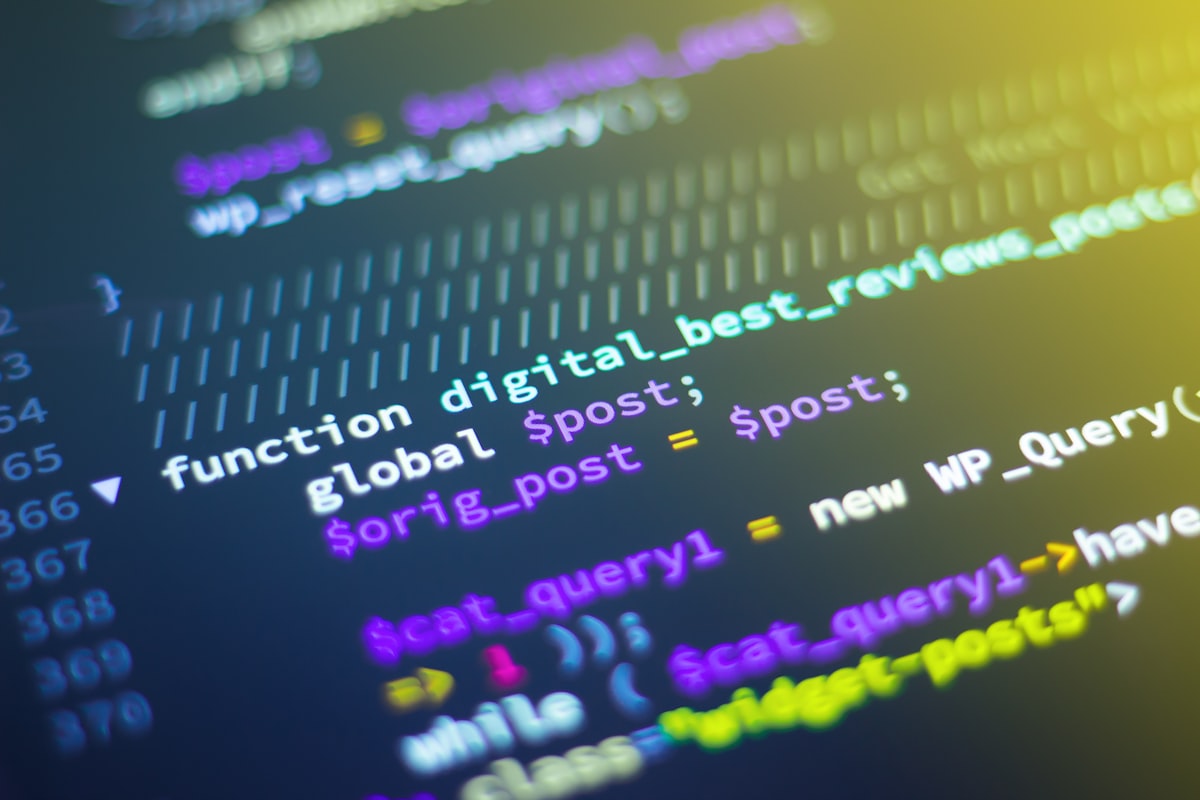What Is Data Science? A Simple Guide for Everyone
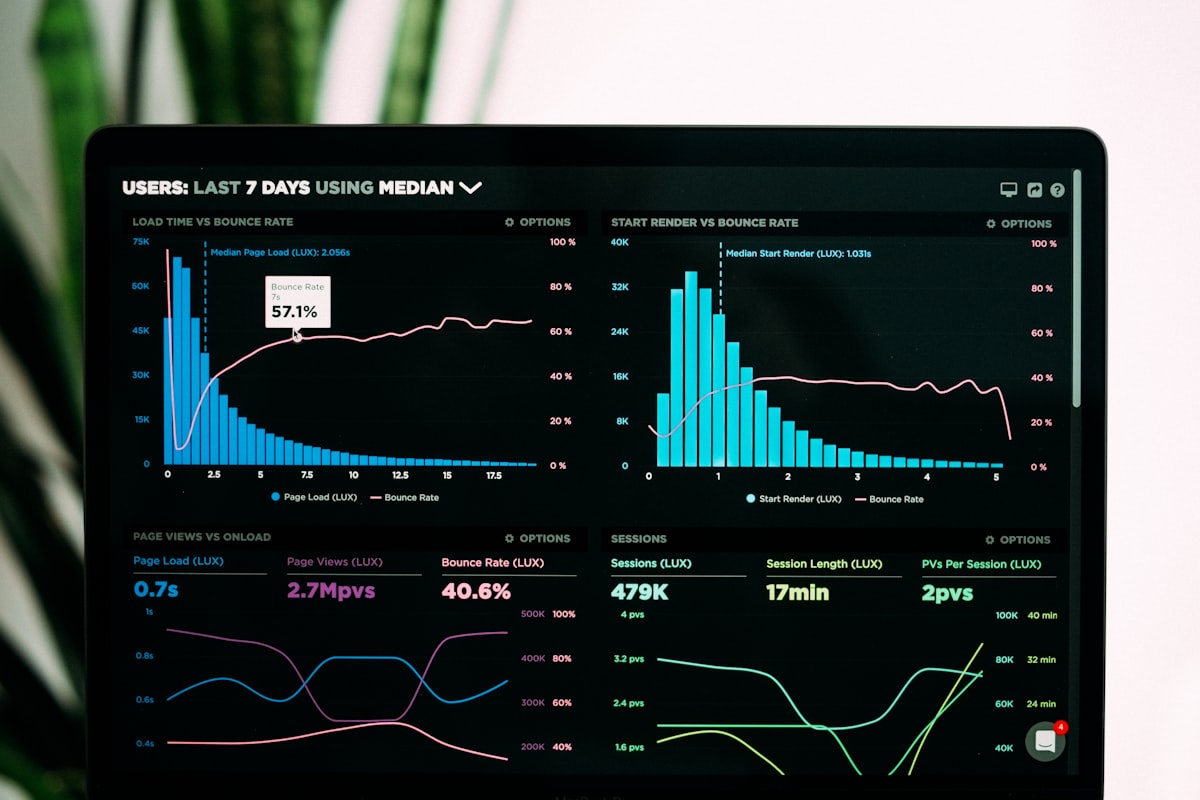
Discover what data science really means and why it's transforming every industry. Learn about the tools, processes, and career opportunities in this beginner-friendly comprehensive guide.
Every time you get a personalized Netflix recommendation, receive a targeted ad on social media, or use GPS navigation that avoids traffic jams, you're experiencing the power of data science. This fascinating field has quietly revolutionized how we live, work, and make decisions. But what exactly is data science, and why has it become one of the most sought-after skills in today's digital world? Whether you're curious about changing careers, improving your business, or simply understanding the technology that shapes our daily lives, this guide will demystify data science and show you exactly what it's all about.
Why Data Science Is Everywhere Today
We're living in an unprecedented era of data creation. Every day, humans generate over 2.5 quintillion bytes of data – that's more data than was created in the entire history of humanity just a few years ago. From social media posts and online purchases to sensor readings and medical records, data is being generated at every turn.
But raw data is like crude oil – valuable only when refined and processed. Data science is the refinery that transforms this raw information into actionable insights, helping companies make smarter decisions, governments serve citizens better, and researchers solve complex problems. It's the bridge between having information and actually understanding what it means.
- Healthcare: Predicting disease outbreaks and personalizing treatments
- Business: Optimizing operations and understanding customer behavior
- Transportation: Improving traffic flow and developing autonomous vehicles
- Finance: Detecting fraud and assessing investment risks
- Education: Personalizing learning experiences and improving outcomes
- Environment: Monitoring climate change and optimizing energy usage
What Do Data Scientists Actually Do?
Think of a data scientist as a detective, statistician, and storyteller rolled into one. They spend their days uncovering patterns in data, building models to make predictions, and translating complex findings into insights that anyone can understand. But the day-to-day reality might surprise you – it's less about complex algorithms and more about careful analysis and clear communication.
Typical Daily Tasks of a Data Scientist
**Data Cleaning and Preparation (60-80% of time):** This might sound tedious, but it's crucial. Real-world data is messy – filled with errors, missing values, and inconsistencies. Data scientists spend most of their time cleaning and organizing this data, ensuring it's reliable enough to draw meaningful conclusions from.
**Analysis and Modeling (15-25% of time):** This is where the magic happens. Using statistical methods and machine learning algorithms, data scientists build models that can predict future trends, classify information, or identify unusual patterns. It's like teaching a computer to recognize important signals in the noise.
**Communication and Visualization (10-20% of time):** Numbers alone don't tell stories – people do. Data scientists create charts, dashboards, and presentations that make complex findings accessible to business leaders, policymakers, or the general public.
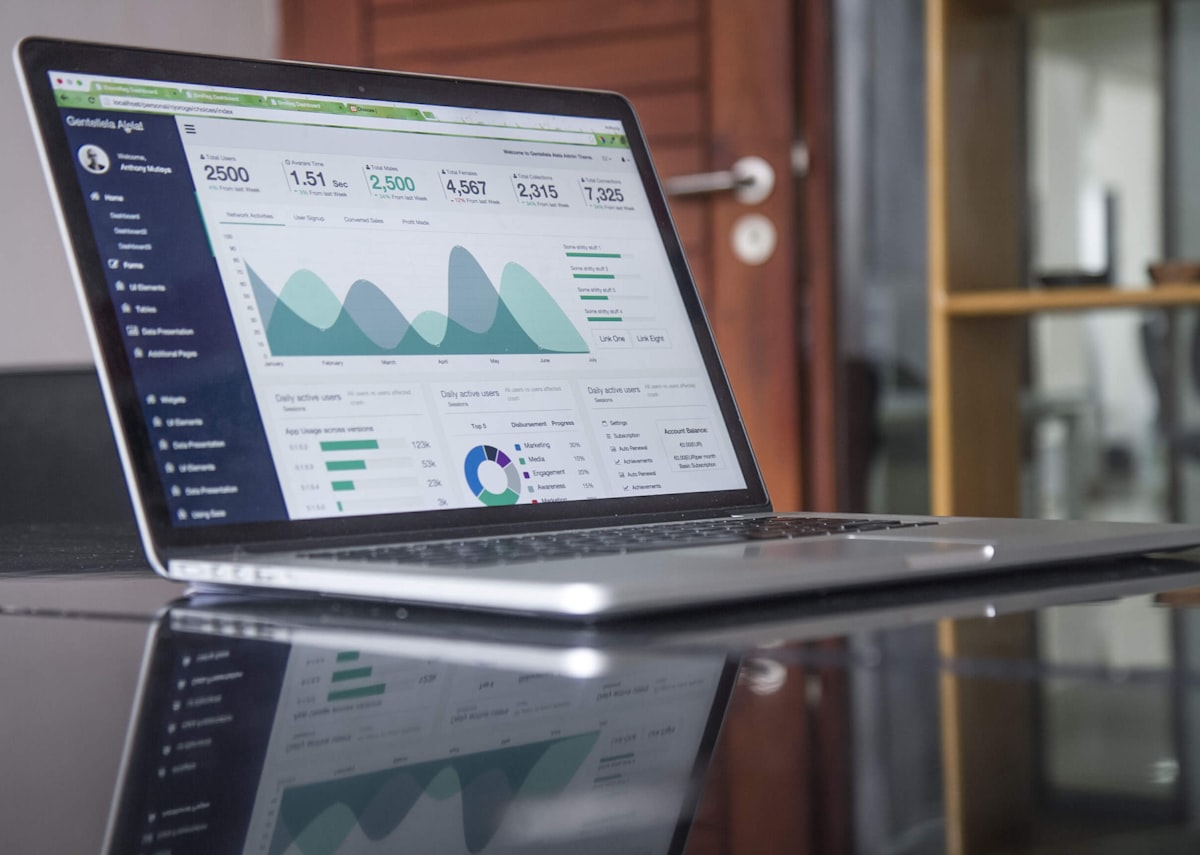
The data science workflow: from raw data collection to actionable business insights
The Data Science Process: From Data to Insight
Data science isn't just about running algorithms on data. It follows a systematic process that ensures reliable, actionable results. Understanding this process helps you appreciate why data science projects take time and why rushing through steps can lead to poor decisions.
- **Define the Problem:** What specific question are you trying to answer? This step determines everything that follows.
- **Collect Data:** Gather relevant data from databases, APIs, surveys, or external sources.
- **Explore and Clean Data:** Understand what you're working with and fix any quality issues.
- **Analyze and Model:** Apply statistical methods and machine learning to find patterns.
- **Interpret Results:** Translate findings into actionable insights and recommendations.
- **Communicate Findings:** Present results in a clear, compelling way to stakeholders.
- **Implement and Monitor:** Put insights into action and track their effectiveness over time.
Core Tools and Languages in Data Science
The data science ecosystem is rich with powerful tools, but you don't need to master everything at once. Most data scientists become proficient in a core set of tools and then expand their toolkit based on specific needs and interests.
Programming Languages: The Foundation
**Python** has become the most popular choice for data science, and for good reason. Its simple syntax makes it accessible to beginners, while powerful libraries like Pandas, NumPy, and Scikit-learn provide everything needed for data manipulation and machine learning. **R** remains strong in statistics and research, offering sophisticated statistical functions and beautiful data visualization capabilities.
**SQL (Structured Query Language)** is essential for working with databases. Most business data lives in relational databases, making SQL skills crucial for data extraction and manipulation.
| Tool | Purpose | Skill Level | Best For |
|---|---|---|---|
| Python | Programming & Analysis | Beginner-Friendly | General data science, machine learning |
| R | Statistical Computing | Moderate | Statistical analysis, research, visualization |
| SQL | Database Queries | Beginner-Friendly | Data extraction and management |
| Jupyter Notebooks | Interactive Development | Beginner-Friendly | Experimentation and documentation |
| Pandas | Data Manipulation | Beginner-Friendly | Data cleaning and analysis in Python |
| Tableau | Data Visualization | Beginner-Friendly | Business dashboards and reporting |
| Scikit-learn | Machine Learning | Moderate | Building predictive models in Python |
| TensorFlow/PyTorch | Deep Learning | Advanced | Neural networks and AI applications |
Real-World Applications of Data Science
Data science isn't just an academic exercise – it's solving real problems and creating value across every industry you can imagine. Let's explore some applications you interact with regularly, often without realizing there's sophisticated data science happening behind the scenes.
Entertainment and Media
Netflix analyzes viewing patterns of millions of users to recommend shows you'll love and even decide which original content to produce. Spotify creates personalized playlists by analyzing your listening habits, the time of day you listen, and what similar users enjoy. These recommendation systems have transformed how we discover entertainment.
Healthcare and Medicine
Hospitals use data science to predict which patients are at risk of readmission, helping them provide better care and reduce costs. Drug companies analyze vast datasets to identify promising new treatments. During the COVID-19 pandemic, data science helped track the virus spread, optimize vaccine distribution, and even predict hospital capacity needs.
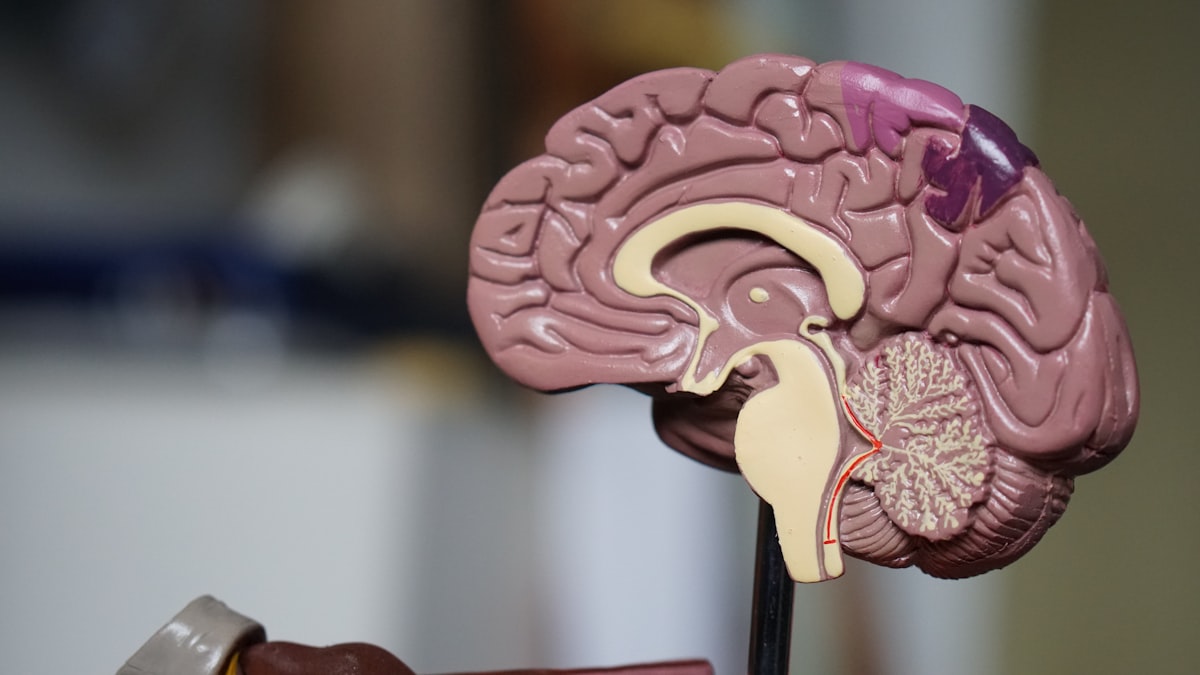
Data science in healthcare: from patient monitoring to drug discovery and epidemic tracking
Other Fascinating Applications
- **Transportation:** Uber and Lyft optimize routes and pricing in real-time based on demand patterns
- **Finance:** Banks detect fraudulent transactions within milliseconds of them occurring
- **Sports:** Teams analyze player performance data to make strategic decisions and prevent injuries
- **Agriculture:** Farmers use satellite data and sensors to optimize crop yields and water usage
- **Retail:** Stores predict demand to optimize inventory and prevent stockouts
- **Smart Cities:** Traffic lights adjust timing based on real-time traffic patterns to reduce congestion
Data Science vs. Related Fields: What's the Difference?
The data world has many overlapping terms that can be confusing. While these fields share common ground, understanding their differences will help you navigate career paths and choose the right learning focus.
| Field | Primary Focus | Key Skills | Typical Output |
|---|---|---|---|
| Data Science | End-to-end insights from data | Statistics, programming, business understanding | Actionable insights and recommendations |
| Machine Learning | Building predictive models | Algorithms, mathematics, programming | Predictive models and systems |
| Data Analytics | Analyzing existing data | SQL, statistics, visualization tools | Reports and dashboards |
| Data Engineering | Building data infrastructure | Database design, ETL, cloud platforms | Data pipelines and systems |
| Artificial Intelligence | Creating intelligent systems | Deep learning, neural networks, algorithms | Autonomous systems and AI applications |
| Business Intelligence | Business performance analysis | SQL, reporting tools, domain knowledge | Executive dashboards and KPIs |
Remember, these fields have significant overlap, and many professionals work across multiple areas. Data scientists often do machine learning, data engineers support data science projects, and business analysts use data science techniques.
Benefits of Learning Data Science
Exceptional Career Opportunities
Data science consistently ranks among the top careers for job satisfaction, growth potential, and compensation. The U.S. Bureau of Labor Statistics projects 35% growth in data science jobs through 2032 – much faster than average. Entry-level data scientists often start with salaries between $70,000-$100,000, with senior roles reaching $150,000+ annually.
- **High Demand:** Every industry needs data professionals, creating job security
- **Versatility:** Skills transfer across industries – you can work in healthcare, finance, tech, or government
- **Remote-Friendly:** Many data science roles offer flexible work arrangements
- **Problem-Solving:** Work on meaningful problems that impact business and society
- **Continuous Learning:** The field evolves rapidly, keeping work interesting and challenging
- **Data-Driven Decision Making:** Develop skills valuable in any role or business venture
Personal and Professional Development
Learning data science develops critical thinking, analytical reasoning, and communication skills that are valuable in any career. You'll become more comfortable with numbers, better at identifying patterns, and skilled at presenting complex information clearly.
Challenges and Ethical Considerations in Data Science
With great power comes great responsibility. As data science influences more decisions affecting people's lives, we must consider the challenges and ethical implications of our work.
Technical and Practical Challenges
- **Data Quality:** Real-world data is often incomplete, inconsistent, or biased
- **Scalability:** Methods that work on small datasets may fail with big data
- **Interpretation:** Correlation doesn't imply causation – careful analysis is crucial
- **Model Drift:** Predictive models can become less accurate over time as conditions change
- **Tool Complexity:** The vast array of tools can be overwhelming for beginners
Ethical Considerations and Bias
Privacy and Data Protection
As data scientists, we often work with sensitive personal information. Regulations like GDPR in Europe and CCPA in California require careful handling of personal data. Data scientists must balance extracting valuable insights with protecting individual privacy rights.
- Always question data sources and potential biases
- Regularly audit models for fairness across different groups
- Respect privacy laws and ethical guidelines
- Be transparent about model limitations and uncertainties
- Consider the broader impact of your work on society
Learn Data Science: Top Resources and Courses
Ready to start your data science journey? The good news is there are excellent learning resources available for every learning style and budget. Whether you prefer structured courses, hands-on projects, or self-paced learning, you'll find something that works for you.
Recommended Learning Path
- **Start with Fundamentals:** Learn basic statistics and probability concepts
- **Choose a Programming Language:** Begin with Python (recommended) or R
- **Practice Data Manipulation:** Master libraries like Pandas for data cleaning and analysis
- **Learn Visualization:** Create compelling charts and graphs to communicate insights
- **Explore Machine Learning:** Understand algorithms and when to apply them
- **Work on Real Projects:** Apply skills to datasets that interest you
- **Build a Portfolio:** Showcase your work on GitHub and personal websites
Top Data Science Learning Resources
Python for Data Science Handbook
Free online book covering essential Python libraries for data science
Coursera Data Science Specialization
Comprehensive program by Johns Hopkins University covering R and data science fundamentals
edX MITx Data Science
University-level courses from MIT covering statistics and data analysis
Towards Data Science
Medium publication with latest trends, tutorials, and industry insights
Free vs. Paid Resources: What to Choose?
Start with free resources to explore your interest and build foundational skills. Many successful data scientists are largely self-taught using free materials. Consider paid courses when you want structured learning paths, personalized feedback, or career services. The most important factor is consistent practice, not the price of your resources.

The data science learning journey: combining online courses, practice projects, and community collaboration
Conclusion: The Power of Data in Your Hands
Data science is more than just a trendy career choice – it's a powerful way to understand and improve the world around us. Whether you're helping a hospital save lives through better patient care, enabling a startup to understand its customers, or contributing to research that addresses climate change, data science gives you tools to make a meaningful impact.
As our world becomes increasingly digital, the ability to extract insights from data becomes more valuable every day. You don't need a PhD in statistics or a computer science degree to get started – you just need curiosity, persistence, and a willingness to learn.
The data science community is known for being welcoming and collaborative. There are countless online forums, meetups, and communities where beginners and experts share knowledge and support each other's growth. Your unique background and perspective will add value to this diverse field.
Ready to unlock the power of data? Start with one small step today – download Python, explore a dataset, or take your first online course. The world of data science is waiting for you, and every expert was once a beginner. Your data science journey starts now!
Tags:
Related Posts
Comments
Leave a Comment
No comments yet
Be the first to share your thoughts!
